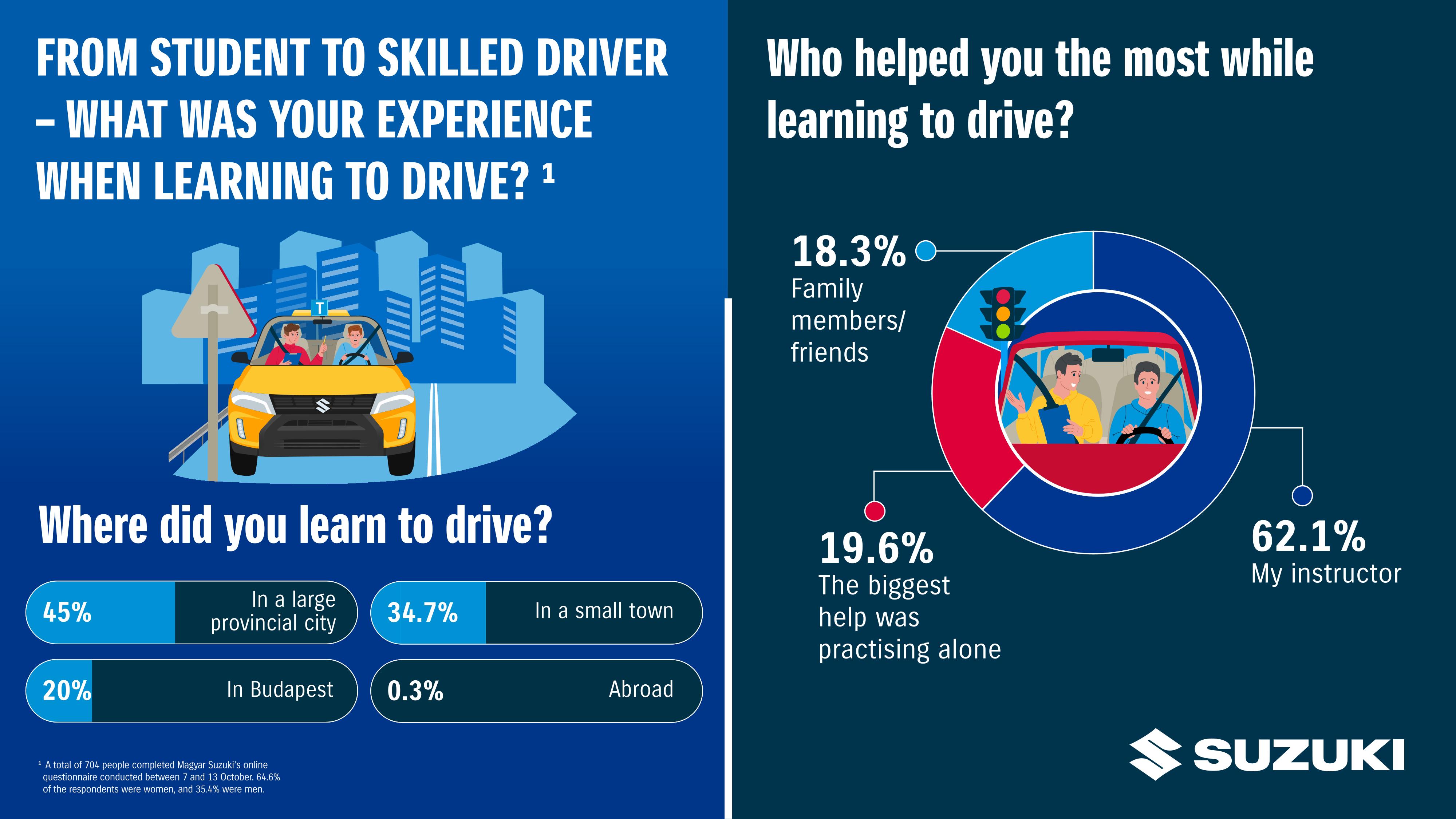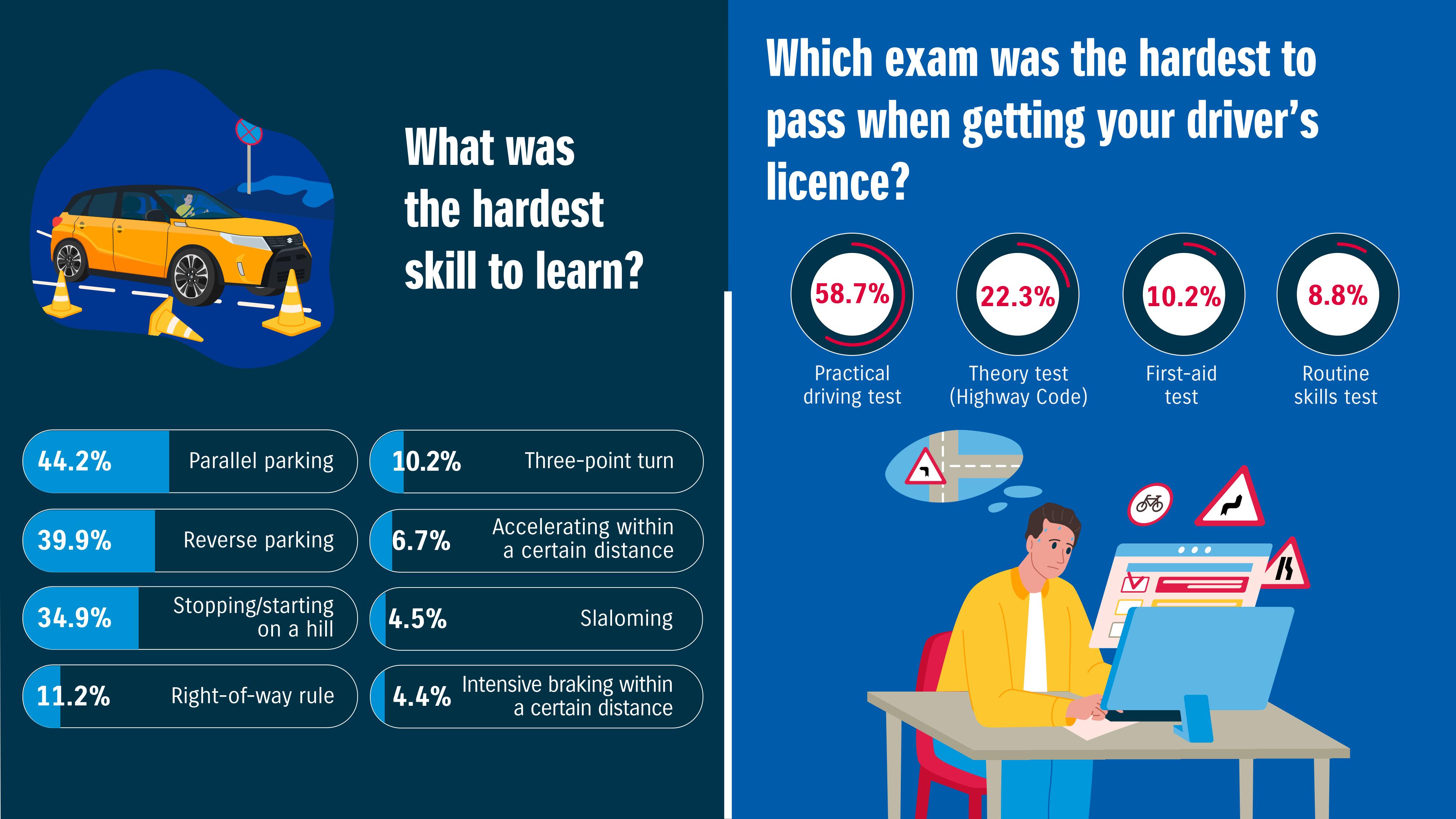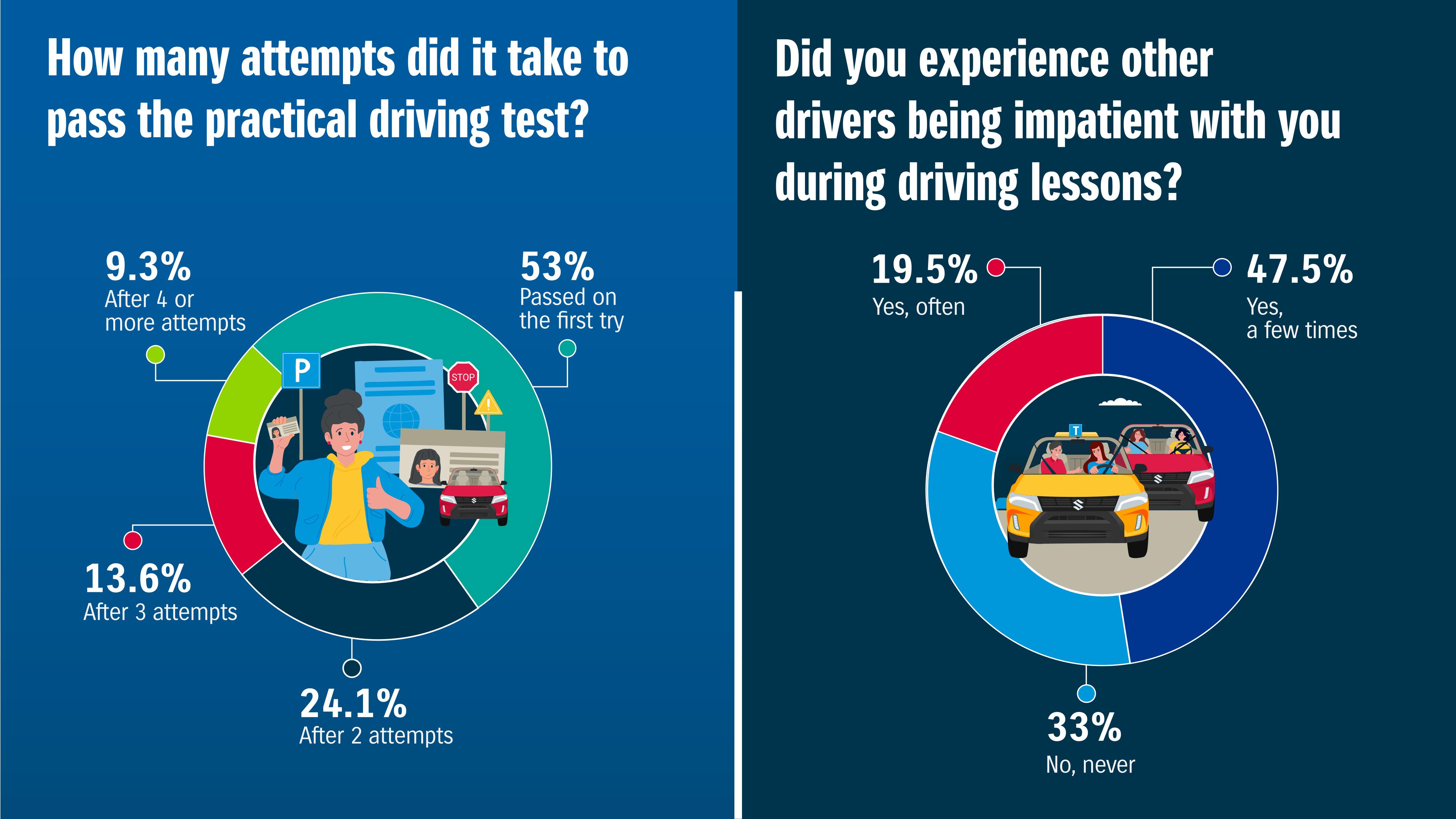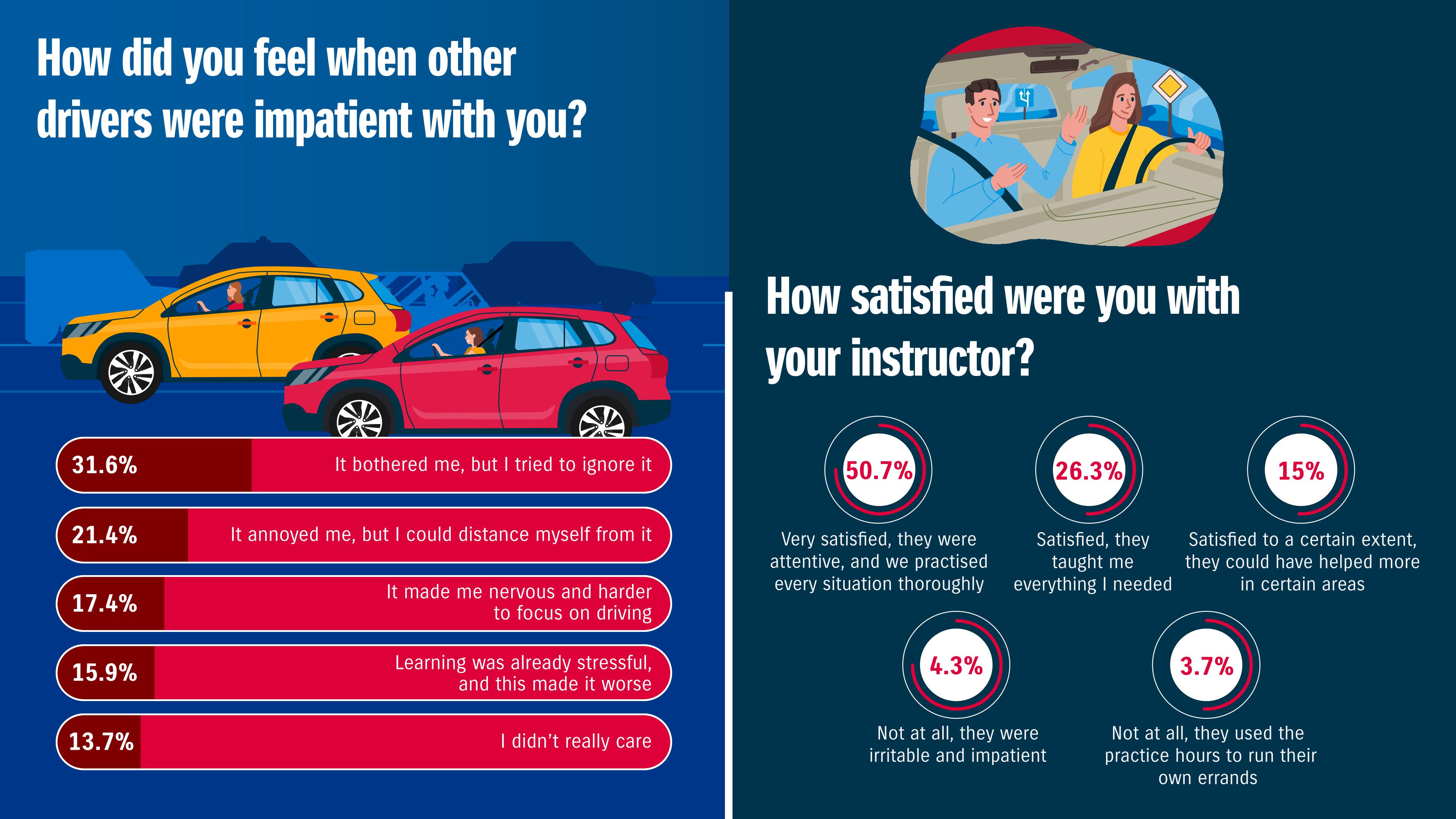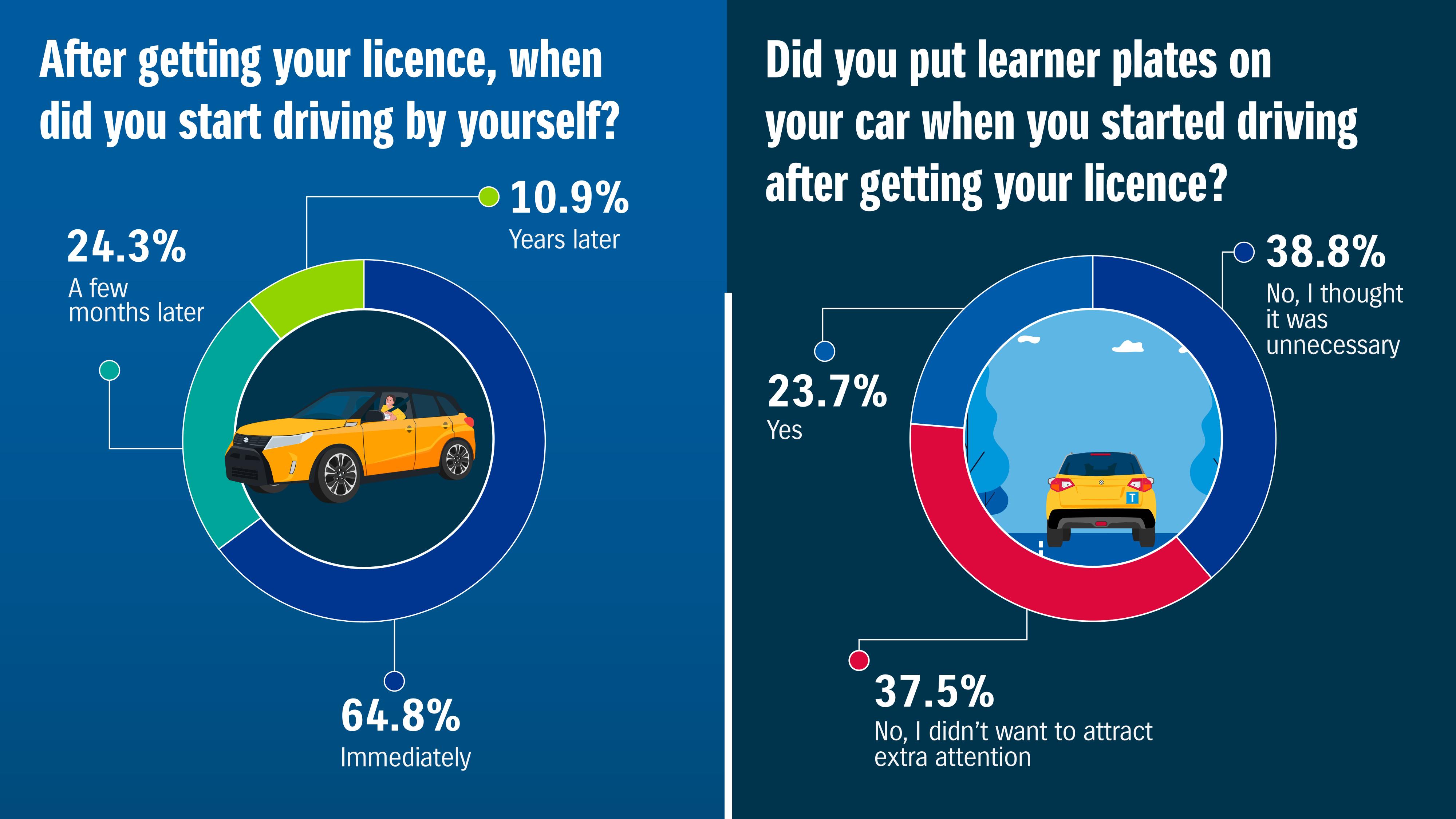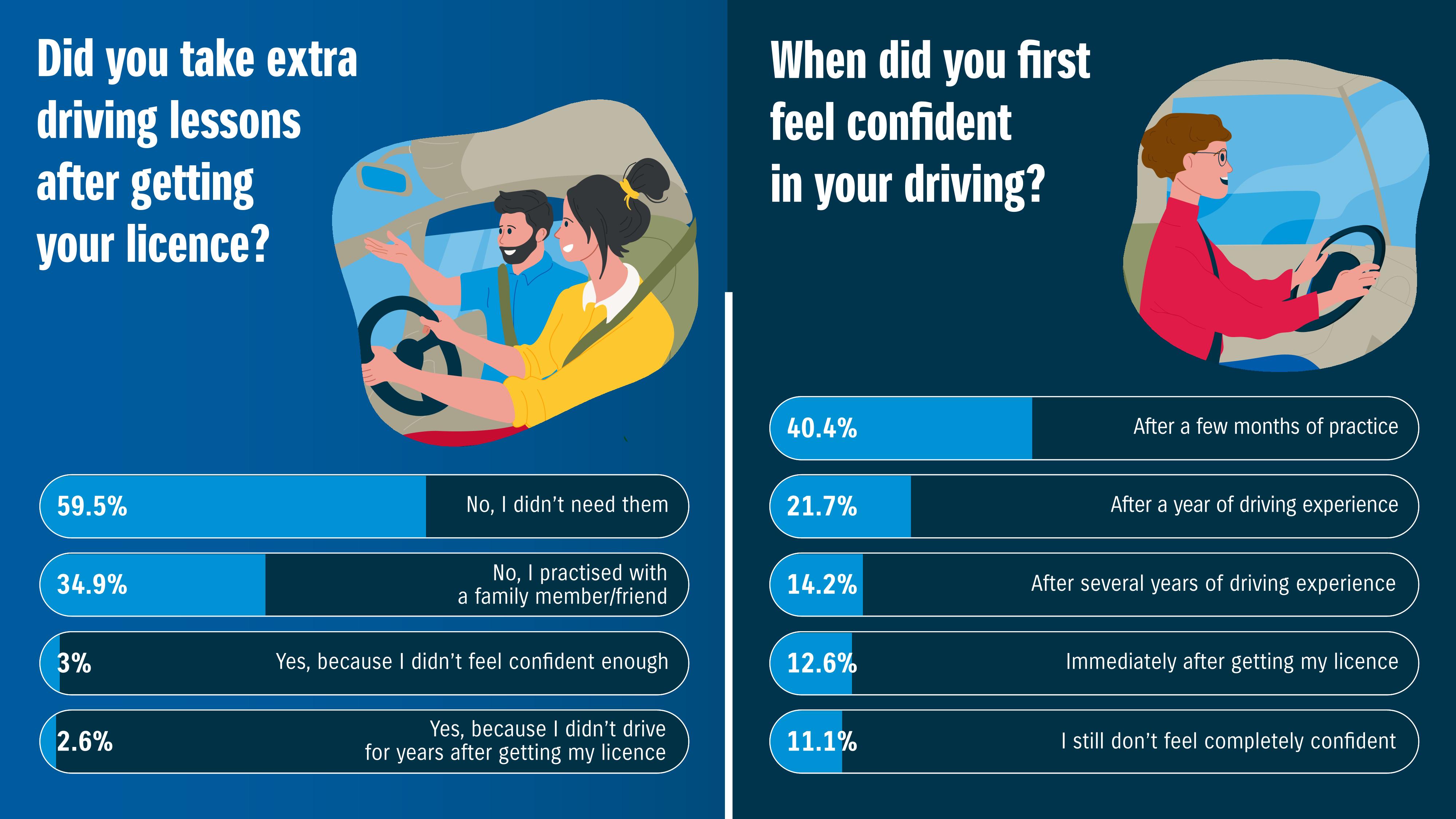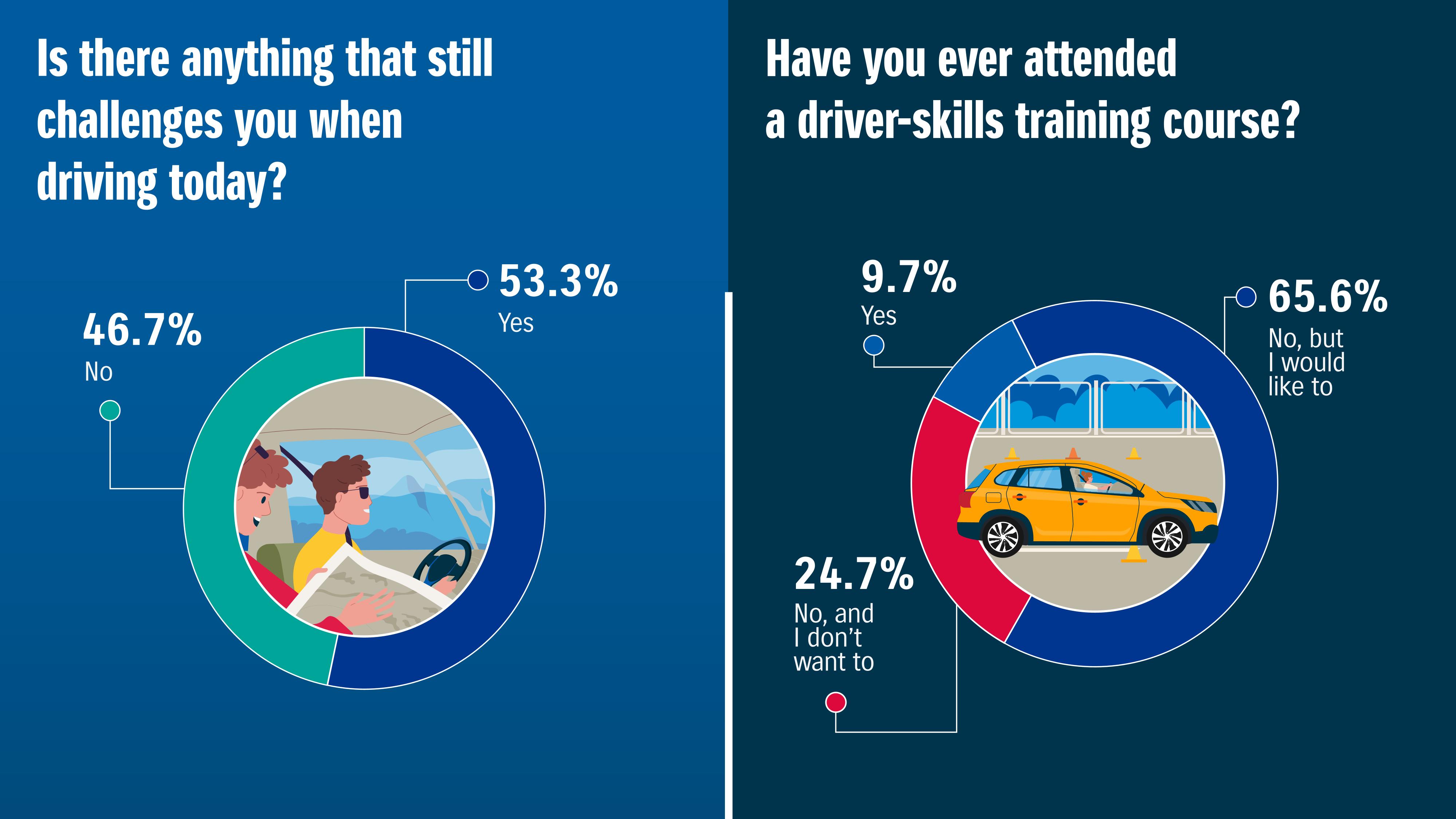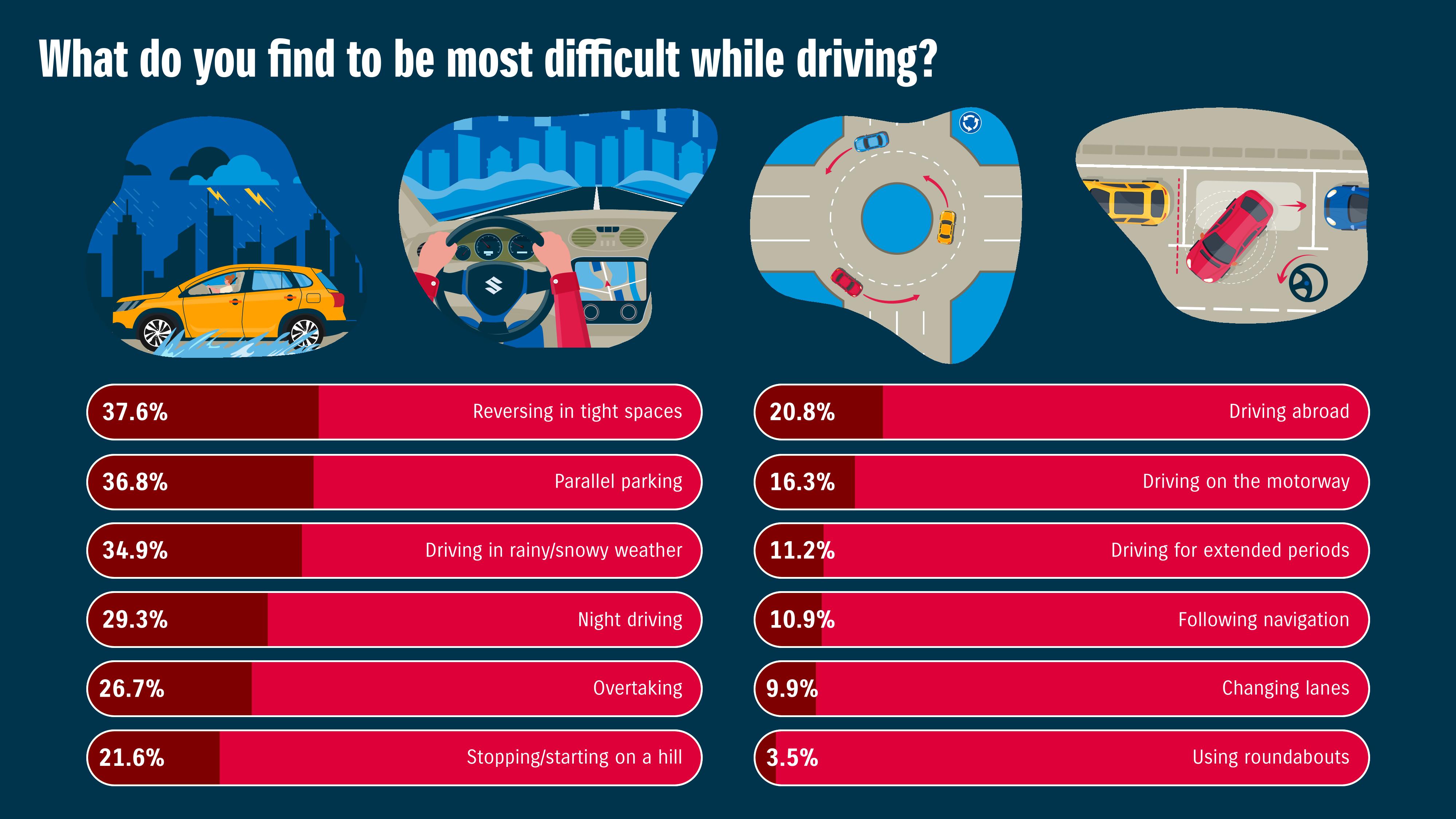news
Parking and uphill challenges for beginner drivers
Parking and driving uphill pose the greatest difficulties for drivers, and the road to obtaining a driver’s licence is not always smooth – as revealed in a survey by Magyar Suzuki . More than one-third of the respondents, however, felt confident on the road after just a few months of practice.
When can we call ourselves experienced drivers, and what unsettles us, even when something as simple as signalling is required? Everyone answers this question differently, and some people still face challenges behind the wheel despite decades of driving experience. Magyar Suzuki wanted to find out what stages Hungarian drivers go through, what was most difficult for them before obtaining their driver’s licence, and what situations continue to unsettle them, even though they now consider themselves experienced drivers.
We are satisfied with our instructors
Nearly half of the respondents learned to drive in a large provincial city and felt that they received the most support from their instructor (62.1%). However, one-third of them relied on themselves (19.6%) or received help from family and friends (18.3%). A good instructor can be a major asset, but some felt that their instructor was actually an obstacle to gaining the basic skills needed for confident driving. The majority of respondents (77%) were satisfied with their instructor, as they taught them everything needed to pass the driving test. However, 8% of respondents said their instructor was impatient, irritated, or didn’t pay attention during the lessons.
Impatience, in general, is an attitude we encounter daily on the roads, regardless of how we participate in traffic. Almost half of the drivers experienced this while learning to drive. The vast majority found it overwhelming in an already stressful situation, and for some, it made the experience even more difficult (64.9%). Those who managed to distance themselves from it while practising (21.4%) were still bothered by the impatience directed towards them. Of course, some were entirely unaffected by this behaviour (13.7%).
For some, it’s slaloming, for others, the motorway
What presents a difficulty while driving can depend on personality, the driver’s feelings, the car’s capabilities, or the circumstances. However, there are situations that challenge both beginner and experienced drivers. Parking can be difficult at any stage, whether parallel parking (44.2% of learners, 36.8% of experienced drivers) or reversing (39.9% of learners). Uphill starts and stops also remain a major trial for many (34.9% of learners, 21.6% of experienced drivers). Yet while learners may feel uncomfortable applying right-of-way rules, reversing into a turn, slaloming, accelerating or braking within a certain distance, experienced drivers face other challenges as they gain more experience. They encounter increasingly complex situations in road traffic. It’s no surprise that after obtaining their licence, drivers find reversing into tight spaces, driving in snowy or rainy conditions, night driving, overtaking, or even driving on motorways or abroad more challenging. According to traffic experts, practising scenarios that may not have been encountered during driving lessons, and taking extra lessons or attending a driving-skills course, can be very helpful. Nevertheless, almost 60% of respondents started driving alone immediately, and 76.3% didn’t even display any learner plates on their car.
Opinions vary, even among experts, about when a driver can claim to have sufficient experience and confidence. More than 40% of those surveyed felt confident after a few months of practice, one in five drivers after a year, while 11% admitted they are still not confident.



